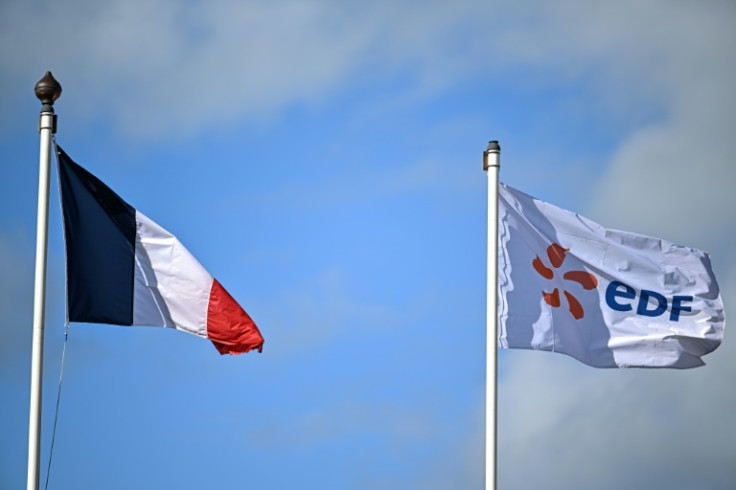Shares Of Renationalised French Power Firm EDF Delisted

Shares in French power firm EDF were delisted on Thursday, nearly a year after the government decided to nationalise the firm to revitalise the country's nuclear power sector and help decarbonise the economy.
France's finance ministry said it had moved to delist the shares of EDF, which traded on Euronext Paris, as the state now holds 100 percent of the capital and voting rights in the firm.
France's Financial Markets Authority (AMF) set last month the date of June 8 for the remaining investors who held approximately two percent of the company's shares to sell them and allow the state to fully take over the firm which operates the country's 56 nuclear reactors.
"This retaking complete control of our national electricity firm was a priority of the government," said Economy Minister Bruno Le Maire, an operation which cost the government 9.7 billion euros ($10.4 billion).
The renationalisation, announced in June 2022 by Prime Minister Elisabeth Borne, "was indispensable for EDF to be able to move faster on several decisive projects", notably the construction of new nuclear power plants, Le Maire added.
The remaining shareholders had been holding out for a higher price than the 12 euros per share offered by the government, but lost their legal battle last month.
When EDF was partially privatised in 2005 its shares were listed at 32 euros, with a 20 percent discount for employees.
The slide in the company's share price in recent years reflected the ageing of the company's fleet of nuclear reactors, many of which have been shut down for extended periods for repairs, as well as repeated delays on completing the first of a new-generation reactor.
The state had owned until recently 84 percent of EDF, and it hopes that the complete renationalisation will help it move swiftly on the construction of at least six new reactors.
Until those reactors come on line in 2035-2037, the French state and EDF plan to redouble efforts on developing renewables and close the gap with European neighbours in this sector.
That production capacity will be needed as the manager of France's electricity distribution network recently revised higher its power demand forecasts in light of the government's climate and industrialisation plans.
EDF has limited financial resources as its debt has climbed to a record 64.5 billion euros, partially due to its limited nuclear generation capacity and government measures to keep power prices low in the wake of a spike in fuel costs following Russia's invasion of Ukraine last year.
The government has promised to come up with a plan to finance the construction of the first six new reactors, at an estimated cost of 51 billion euros, by the end of the year.
© Copyright AFP {{Year}}. All rights reserved.





















